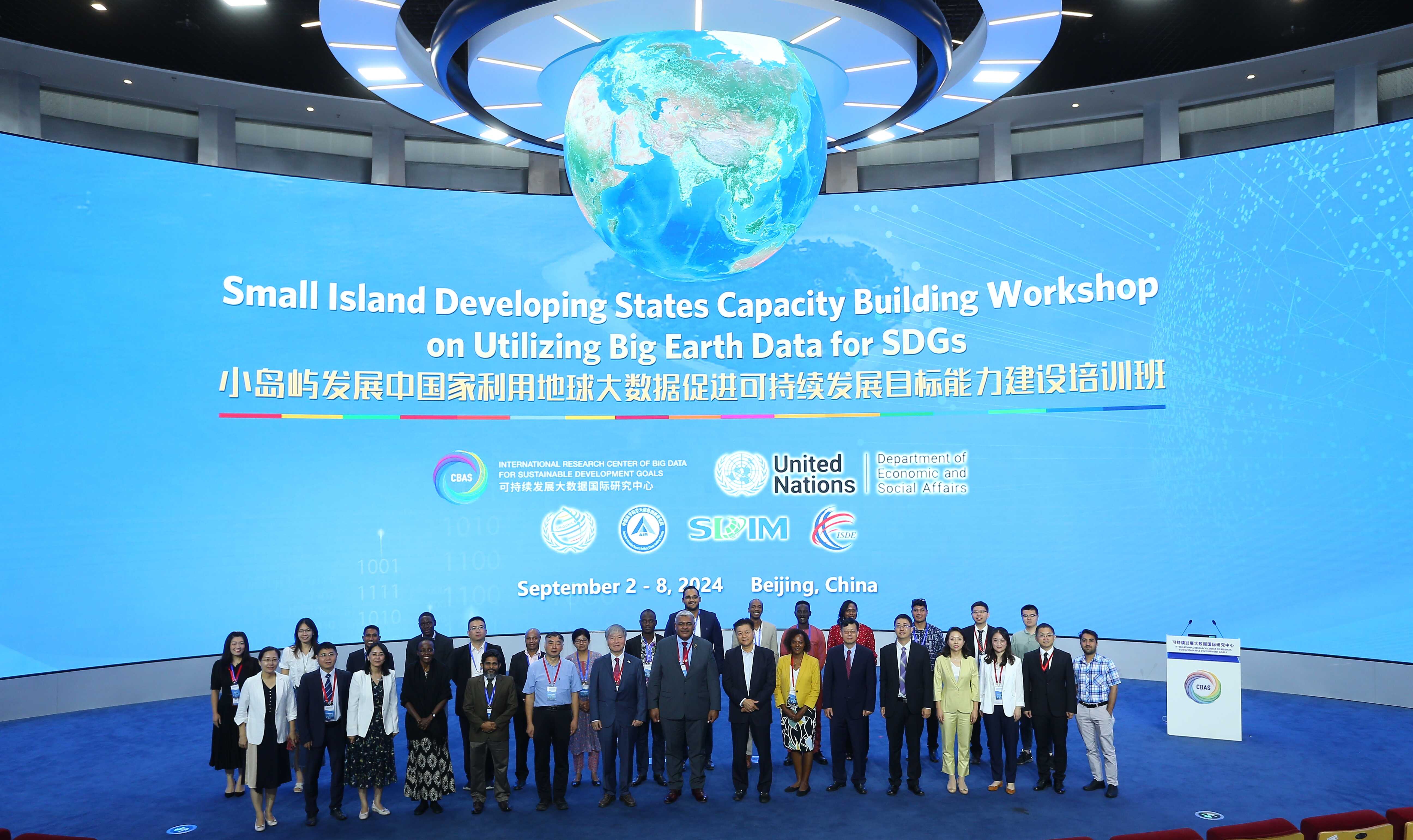Workshop in Beijing Empowers Small Island Developing States with Big Earth Data for Sustainable Development
On September 2, 2024, a workshop themed "Capacity Building on Utilizing Big Earth Data for Sustainable Development Goals (SDGs) in Small Island Developing States (SIDS)" opened in Beijing. The 8-day event aims to enhance the SIDS’ability to monitor and assess SDG progress using Big Earth Data, thereby strengthening informed decision-making.
Co-organized by the International Research Center of Big Data for Sustainable Development Goals (CBAS), the United Nations Department of Economic and Social Affairs (UNDESA), and the United Nations Global Geospatial Information Knowledge and Innovation Centre, the workshop hosts nearly 20 representatives from 10 nations, including Guinea-Bissau, Mauritius, the Dominican Republic, Jamaica, Kiribati, Papua New Guinea, Maldives, Timor-Leste, Cape Verde, and São Tomé and Príncipe. These participants, representing various government bodies and institutions, are focused on leveraging Big Earth Data to tackle the unique challenges of sustainable development in SIDS.
Comprising 37 UN member states and 20 regional commission associate members, SIDS represent 28% of developing countries and 20% of UN members. Despite their small landmass, these states control vast territorial waters covering one-fifth of the Earth's surface. However, SIDS face significant challenges, including climate change, natural disasters, and limited economic diversity.
The United Nations has consistently supported SIDS, from the Barbados Programme of Action in 1994 to the Samoa Pathway in 2014, advocating for global assistance in technology, finance, and capacity building to address these challenges.
In March 2024, UNDESA and other organizations held the "Fourth Technical Workshop on the International Conference on SIDS," focusing on an SDG monitoring framework tailored for SIDS. The "Fourth International Conference on Small Island Developing States," held in May 2024, resulted in the "Antigua and Barbuda Agenda for SIDS" (ABAS), a plan for the next decade focusing on sustainable development and disaster risk reduction.
The Beijing workshop directly responds to ABAS, equipping SIDS with the knowledge and tools needed to use Big Earth Data effectively. Key topics include Big Earth Data sharing, SDG indicator monitoring, land cover dynamics, SDGSAT-1 data applications, disaster risk reduction, sustainable urban and ocean development, and AI-driven data processing.
Participants will engage in technical lectures, hands-on practice, site visits, and discussions to deepen their understanding of how Big Earth Data can address the specific challenges faced by SIDS. The workshop also aims to build a network of professionals and researchers dedicated to applying digital technologies for sustainable development.

A group photo. (Image by AIR)



News & Events